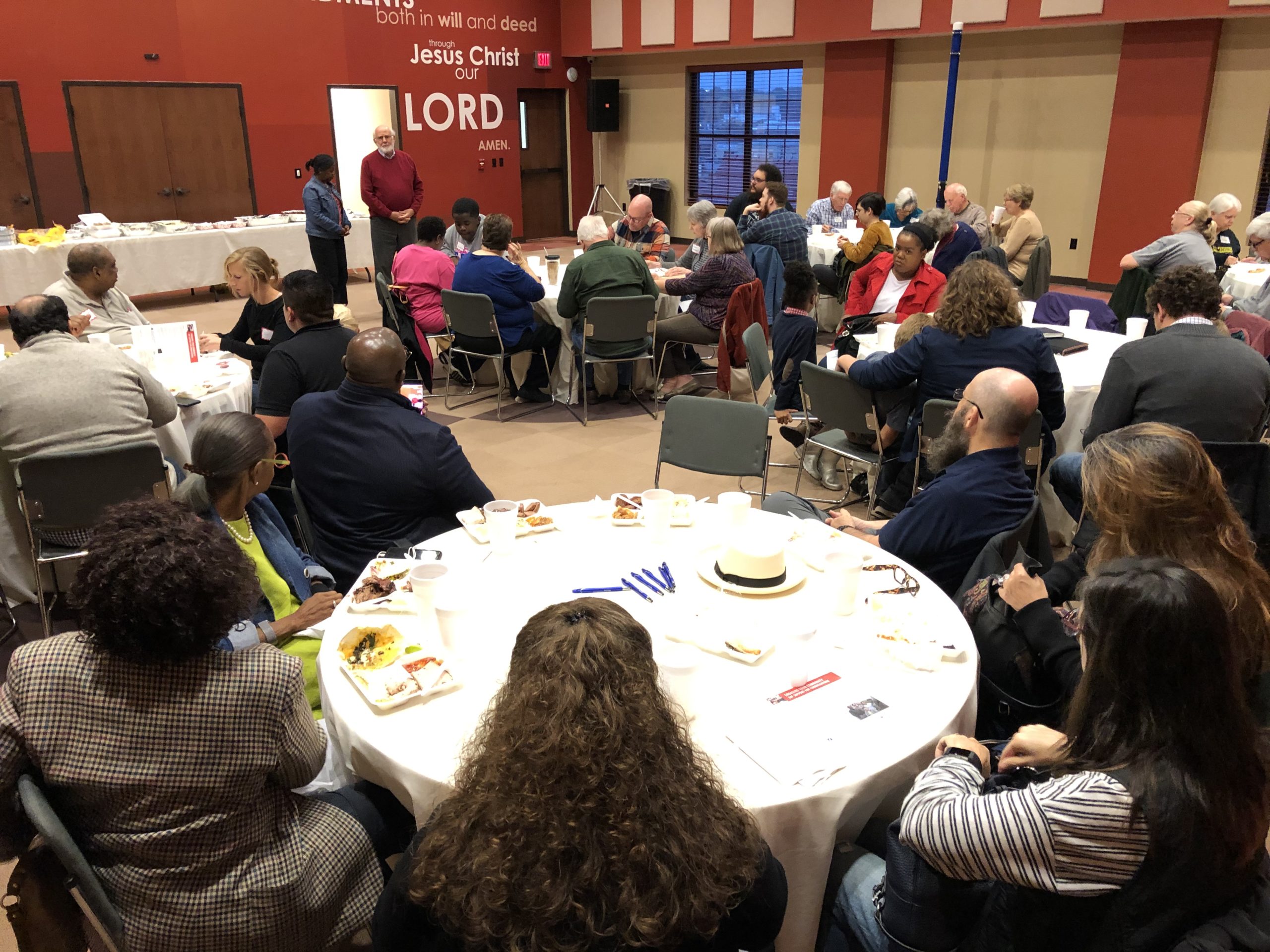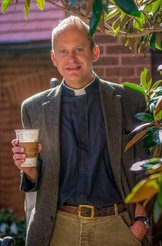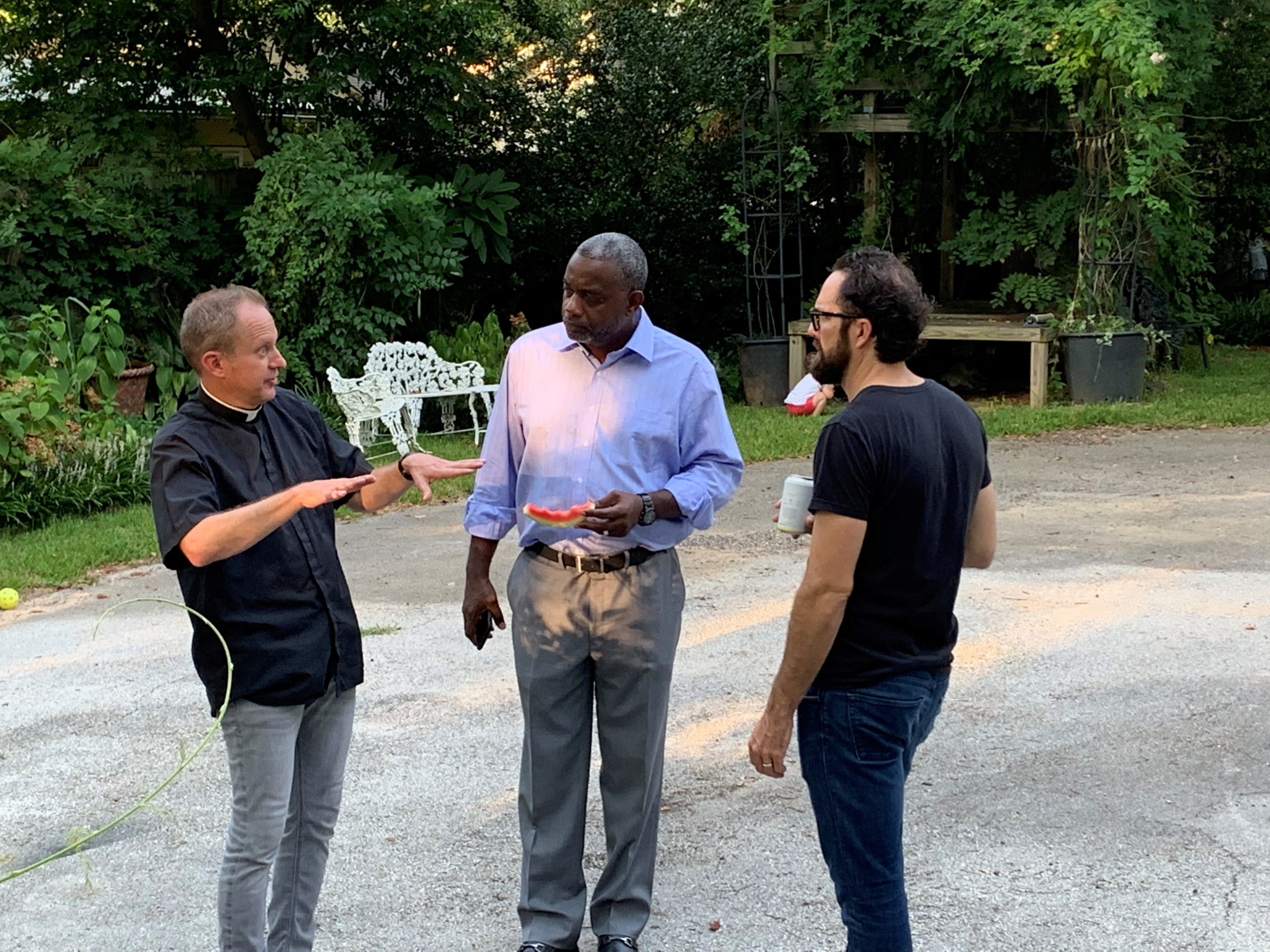
The Rev. Dr. Matthew Boulter is Associate Rector of Christ Episcopal Church in Tyler. Two years ago, EHF began working with Tyler-area churches to start a conversation around racial reconciliation with a screening of the documentary film Traces of the Trade at St Francis Episcopal Church.
In July, the conversation continued with a workshop facilitated by Houston-based Project Curate at EHF’s In Common gathering. Beginning in late summer, Christ Church has hosted several gatherings over a meal to foster intercultural dialogues. Members of all three congregations, additional churches in town, and other community groups have attended the gatherings. Fr. Matt shares his reflections on all of this with us, and we are grateful for his candor and commitment to show up for solidarity in Tyler, Texas.
Seeds of Justice (and Kinship) in Tyler

By The Rev. Dr. Matthew Boulter
I’ve never viewed the ministry of the church, the Body of Christ, primarily as one of activism. I have, for a long time, worried about the tendency of some “main line Protestant denominations” to water the scandalous, radical, counter-cultural Gospel of the Cross down to what, in my more cynical moments, I cannot help but think of as “do-gooderism.”
And yet, the God of the Bible, including his presence among us in the person and work of Jesus Christ, is a God of justice. And the persistent message of both testaments is that God cares at least as much about the justice of the marginalized and oppressed as he does about anything else.
“Love God, and love neighbor” is the consistent refrain we receive from the word of the Lord.
Add to this biblical imperative the recent cultural “uptick” of veiled racism coming from the highest level of political power in our nation along with the resulting affects I see in the face of almost every Latino acquaintance I have; the result is that I have been moved in the last couple of years to look for opportunities to “stick my neck out” and forge bonds of peace and love with friends of color in my city of Tyler, Texas. This desire has led me to say “yes” to an invitation from the Episcopal Health Foundation to organize gatherings in Tyler centered on racial reconciliation, beginning last summer with a workshop at Christ Church, spear-headed by our friends at Project Curate in Houston.

My motivation is largely self-interested. The painful truth is that, for the last nine years living in Tyler, I have been living in an insulated bubble of white culture, in spite of my marriage to an Asian American woman, and in spite of our decision nine years ago to move into a neighborhood in Tyler which is atypical for a white Episcopal priest. (Things were different in my pre-Tyler life, living and ministering in East Austin, where I spoke Spanish a good portion of the time and lived and served among great cultural and racial diversity.)
After last summer’s event with Project Curate, our group of interested folks from virtually all races followed up with a meeting at my house, and then one at the historically-black St. John’s Episcopal Church in North Tyler, located in a predominantly Hispanic and African American neighborhood. Then, this past October, Christ Church hosted a viewing of “Traces of the Trade” (an award-winning documentary dealing with the American slave trade), followed by a discussion of the film—and the responses it provoked within us, the viewers—led by Dain and Constance Perry, an interracial couple intimately associated with the story, narrated the film.
This film viewing and discussion was an amazing event! The diverse crowd of over fifty attenders was populated by young and old, rich and poor, Episcopalian and not, from all different backgrounds and cultures. The discussion afterward—both the formal Q & A session led by Dain and Constance, and the casual conversations had by friends old and new—was rich, powerful, satisfying, and meaningful. This meeting, in turn, was followed up by another gathering hosted by St. James Christian Methodist Episcopal Church in North Tyler, a congregation led by Pastor Brian Lightner. Who knows where this momentum, this passion for justice forged in relationship, might lead?
And speaking of Pastor Lightner, my deepening relationship with this African-American leader brings me back to what for me is the most intimate and beloved dimension of this work. You might call it “kinship” (I’m thinking here of Father Greg Boyle of Homeboy Industries in L.A.); you might call it “trusting affection.” You might call it “justice-rooted love.” Whatever it is, it makes life worth living, and for me it is a pearl of great price, that brings glory and honor to our justice-loving God.